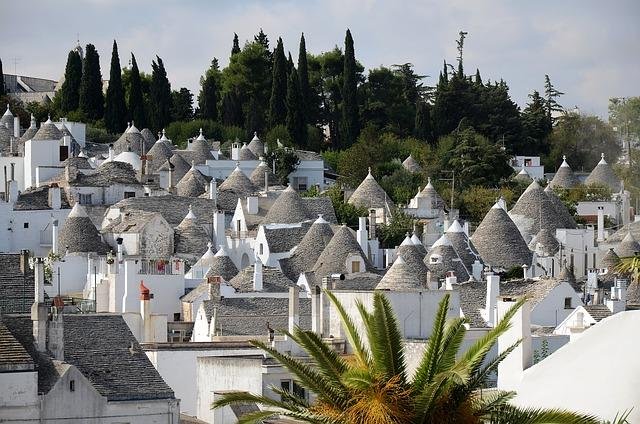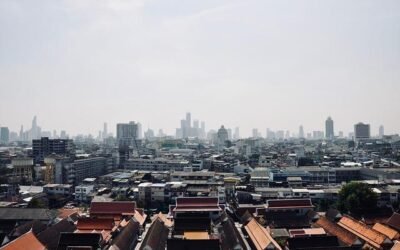Are you seeking a unique destination that seamlessly blends culture, history, and education? Welcome to Alberobello—the enchanting Trulli Town of southern Italy. Known for its iconic cone-shaped houses, Alberobello is a UNESCO world Heritage Site with a captivating past. This guide goes beyond the picturesque landscapes, unraveling thought-provoking educational facts and school histories, and offering practical travel tips for students, teachers, and cultural enthusiasts alike. Whether you’re researching university programs, curious about ancient schooling traditions, or planning an educational journey, read on to unlock the secrets of Alberobello.
Why Choose alberobello for Educational Travel?
- Rich Educational Heritage: From ancient monastic schools to present-day cultural institutions, Alberobello offers invaluable insight into Italy’s scholarly traditions.
- Living History: The trulli—unique limestone dwellings—stand as testaments to ingenious architectural adaptation and community learning.
- Dynamic Learning Experiences: Local museums, guided tours, and interactive workshops create memorable opportunities for experiential education.
- Charming Italian Atmosphere: Beyond books and lectures, embrace hands-on learning through culinary classes, language immersion, and artisan crafts.
The Fascinating School & Education History of Alberobello
The Monastic Influence & Early Learning
Alberobello’s roots in education can be traced back to Apulian monastic communities during the middle Ages. Monasteries played a fundamental role in educating local children,preserving knowledge,and teaching Latin,arithmetic,and sacred texts. The Franciscans, who arrived in the 17th century, built convents that doubled as early schools, laying the groundwork for the town’s commitment to communal learning.
Trulli Schools: Lessons Under the Conical Roofs
By the 18th and 19th centuries, education in Alberobello transitioned into more formalized settings. Primary lessons were often held inside trulli, the iconic dry-stone huts. These makeshift classrooms not only protected students from the whether but also highlighted the community’s resourcefulness. Here are some intriguing facts:
- Flexible Spaces: Trulli schools rotated locations to accommodate seasonal needs of families and farming cycles.
- Integrated Learning: Children learned local crafts, farming, and practical mathematics alongside reading and writing.
- Community Driven: Families supported teachers with harvest crops and repairs,emphasizing the collective investment in learning.
The Dawn of Modern Schooling in Alberobello
The late 19th and early 20th centuries saw the construction of dedicated school buildings,marking a shift toward universal education. Today, Alberobello boasts a range of public schools, preschools, and specialized institutes, nurturing both local children and international students interested in Italian culture and language studies.
Educational Institutions and Study Programs in Alberobello
While Alberobello is renowned for its primary schools and secondary education, it’s also a hub for cultural and short-term educational programs, focusing on:
- Architecture and Restoration: Hands-on workshops revealing the secrets behind trullo construction, available for students and enthusiasts of heritage preservation.
- Artisanal Crafts: Local schools and associations offer courses in pottery,embroidery,and olive oil production,highlighting centuries-old traditions.
- Culinary Arts: Professional chefs and home cooks lead immersive cooking classes featuring regional Apulian recipes.
- Italian Language Immersion: language schools craft short and long-term Italy study experiences, integrating tours of historical sites.
Immersive Learning: Experiences for Education-Minded Travelers
Guided School History Tours
Specialized guides in Alberobello offer educational walking tours focused on the evolution of learning and teaching in the region. Tours often include:
- A visit to a restored trullo-classroom, complete with period furnishings
- Stories of famous local educators, students, and community milestones
- Insights into the role of education in rural life from the 18th century to today
Hands-On Workshops
Travelers can participate in trullo construction demonstrations, mosaic-making workshops, and agricultural activities, aligning learning with practical skills. For students and teachers, these experiences facilitate cross-cultural understanding and tangible links to curriculum themes ranging from history to environmental studies.
Local Libraries & Archives
Alberobello’s public library and municipal archives hold treasures for researchers and curious visitors. These spaces host lectures, temporary exhibits, and children’s programming on the region’s educational and literary achievements.
Case Study: A Day in the Life at Alberobello’s Historic Schools
to illustrate the evolving face of education in Alberobello, let’s step back to the late 19th century. Local records reveal that one-room trullo schools welcomed boys and girls of all ages.A typical day featured:
- Mornings spent reciting the alphabet and reading verses from Italian classics
- Afternoon craft lessons centered around trullo construction techniques or olive pressing
- Community storytelling circles where elders shared folklore, thereby embedding oral history into education
- Seasonal “field days” where students learned farming methods and documented wildlife in the Apulian countryside
Fast forward to the present, and you’ll find modern classrooms valuing project-based learning, sustainable practices, and digital literacy, all while respecting centuries-old traditions. Local schools often collaborate with cultural institutes, hosting international partnerships and student exchanges for a distinctly global outlook.
Benefits of Educational Travel to Alberobello
- Cultural Gratitude: Gain deep insights into southern Italy’s rural heritage,architectural innovation,and educational evolution.
- Interdisciplinary Learning: connect history,art,language,and environmental studies in a vibrant,real-world classroom.
- Language Skills: Practice Italian with local students, teachers, and artisans in authentic contexts.
- Personal Growth: Discover new perspectives and foster independent, critical thinking skills through immersive exploration.
Practical Tips for Education-Focused travelers
- Visit Off-Peak: Plan your trip in spring or autumn for a more personalized educational experiance with fewer crowds.
- Guided Tours: Opt for tours led by educators or historians to gain the most context and value.
- Language Prep: A basic grasp of Italian enriches the experience—consider a short language course before arrival.
- School collaborations: teachers should contact Alberobello’s schools and cultural associations in advance to arrange exchanges or visits.
- Respect local Customs: Dress appropriately when visiting schools or sacred sites and be mindful of traditional protocols.
First-Hand Experience: Traveler Testimonials
“Exploring an old trulli schoolhouse was a highlight of our trip. The stories of past students, the ancient blackboards, and the smell of chalk—it brought history to life for my family.” — Maria, English teacher from London
“My university architecture class attended a restoration workshop here. Learning how local craftsmen maintain centuries-old trulli was both educational and inspiring. Alberobello is perfect for anyone passionate about cultural heritage.” — Edoardo, student from Florence
Conclusion: Unlock the Educational Wonders of Alberobello
From its monastic origins and trulli schoolhouses to present-day multicultural institutions, Alberobello stands as a beacon of lifelong learning in southern Italy. No matter your background—student, educator, or curious traveler—the town’s school history, educational activities, and engaging community will enrich your understanding of italian culture and the enduring value of education. Prepare to be inspired, educated, and enchanted as you unlock the many layers of Alberobello, Italy’s remarkable Trulli Town.








0 Comments